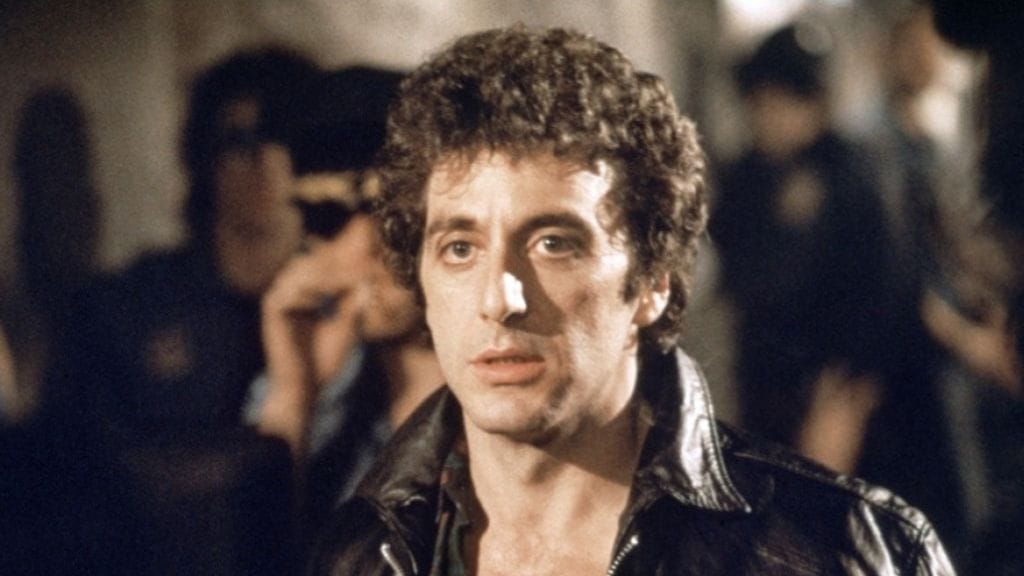
‘The Queen of My Dreams’ Review
Sep 11, 2023
This review was written during the 2023 WGA and SAG-AFTRA strikes. Without the labor of the writers and actors currently on strike, the film being covered here wouldn’t exist.Among some of the first relationships we ever experience, the dynamic between a mother and daughter is often fraught with complex phases and emotions. What starts as a basic human need filled with strong admiration and love, begins to shift over time and evolve into a struggle between the past and present. Films like Terms of Endearment, Lady Bird, and even Everything Everywhere All Once have explored the turbulent nature of mother-daughter relationships by creating strong, intergenerational dialogues. But as they each unveil a layer brimming with culture through the bonds of time, it is Fawzia Mirza’s directorial feature The Queen of My Dreams starring Amrit Kaur, Nimra Bucha, and Hamza Haq that finds a new one. It is a film that is a beautiful love letter to mothers and daughters through a compassionate lens rooted in love for family and the grief of not being fully seen.
With humble roots as a short film from more than a decade ago in which Mirza starred, The Queen of My Dreams weaves the textures of Canadian and Pakistani culture through Indian cinema with one of Bollywood’s most beloved films, Aradhana, starring icon Sharmila Tagore. Operating in conversation with the 1969 film that tells the story of a woman dedicating her entire life to her husband and son, Mirza is not so far from creating parallels even if The Queen of My Dreams is about challenging tradition. Though complex, layered, and heartbreaking, the 97-minute drama-comedy manages to churn up a dialogue about the challenges and emotions felt by immigrant mothers and the impact felt by their daughters. In an attempt to explore individual desires and cultural expectations, The Queen of My Dreams serves as a touching, sincerely heartfelt communication of how we must learn to understand each other.
‘The Queen of My Dreams’ Tackles Intergenerational Missteps
Image via LevelK, TIFF
Crossing decades, generations, and beliefs across a beautiful, vibrant palette of color and culture, The Queen of My Dreams explores life through the eyes of queer Muslim student Azra (Kaur) in 1999, who has a tense relationship with her mother, Mariam (Bucha). Connected through their shared obsession with Aradhana, the Pakistani mother and her Canadian daughter come of age in two very different generations. Whereas Mariam has devoted her life to her family and religion, praying five times a day, her daughter is working toward her MFA, dreams of becoming an actor, and shares an apartment with her girlfriend whom she sings “Mere Sapno Ki Rani” to in the first few minutes of the film, which translates from Hindi and Urdu to the film’s title and is about a man finding the love of his life — the queen of his dreams.
While Azra’s father Hassan (Haq) tries his hardest to mediate between the two and bring them together, the women often never see eye to eye. In so many ways, this plays to a cultural miscommunication in which there is an underlying inequality and sexism permeating through traditions, ultimately bringing the two head-to-head over the littlest things. Illustrating the misunderstood dynamics through compassion and immense heart, The Queen of My Dreams is not only a love letter to Bollywood and its impact on our family but also to the connection between mothers and daughters usually knotted in intergenerational missteps. However, things take a dramatic turn when Azra must fly out to Karachi after her father’s untimely death, leaving her and her brother Zahid (Ali A. Kazmi) devastated. With Mariam expecting her youngest child to act like the traditional grieving daughter, the two begin to butt heads over tradition.
As the story unfolds and Azra takes up residence in her mother’s old home, The Queen of My Dreams flashes back to Karachi in 1969 where we meet young Mariam and Hassan, and the life they chose to make together — even if it means, moving away from her parents and leaving Pakistan. This timeline serves as the beating heart of the film and a romanticized memory of a time that is gone, yet still hurts. Through looking at her mother’s belongings and speaking with her family following Hassan’s death, Azra begins to understand who her mother was and where the two share commonalities, including their mutual love for Sharmila Tagore. In their journey as a family, the film also travels back to 1989 Nova Scotia, where Mariam and Hassan have moved their children to Canada, and the Pakistani mother is having a hard time adjusting. Selling Tupperware to WASPS who mistake her for being Indian, we get the first glimpses of the conflict brewing between Azra and Mariam, and what has led to their estranged relationship.
‘The Queen of My Dreams’ Shines With Its Cast
Image via LevelK, TIFF
Amrit Kaur, who is best known for playing the cheeky and flirtatious Bela on HBO’s The Sex Lives of College Girls, gives one of her best performances to date in The Queen of My Dreams. Not only is her performance as Azra engrossing and sincere but there’s something about Kaur that really convinces us that she feels her character’s pain and anguish. In attempting to convey Azra’s responses and the kaleidoscope of emotion she experiences in every interaction with her mother, Kaur has an unfiltered magnetism that elevates the film. As it shifts tonally and stylistically between the two eras, one of the joys of Kaur’s performance is seeing her play both Azra and the younger Mariam, which she manages to do most impeccably.
Since first breaking out onto the North American scene with Ms. Marvel and Polite Society, Nimra Bucha has rightfully become one to watch. It’s shocking to think we haven’t had the pleasure of her presence in films this side of the pond for all these years, but we’re all the better for it now. With a performance that is focused and hard-hitting, Bucha delivers a warm sincerity to her role that, personally, feels familiar for this child of Pakistani immigrants and a mother who also dreamed as big as Mariam. Bucha holds a majestic quality to her performance that will have your undivided attention.
Most importantly, the chemistry these two women share is captivating as we watch their characters in a tug-of-war across traditions, values, and beliefs. It’s incredible to watch and gives so much to what the movie is with its message of love, family, and the grief of feeling unseen. While they share genuine chemistry, Hamza Haq, best known for his role in CTV’s Transplant is just as dynamic. Though he has to play both versions of his character, the layers in which he showcases Hassan through each interaction with Azra and Mariam over the years are brimming with a sharp soulfulness. The dynamics he shares with them not only add to the film’s message about family but also imbue the scenes with a welcoming spirit.
‘The Queen of My Dreams’ Is More Than Just Bollywood Glamour
Image via LevelK, TIFF
With The Queen of My Dreams lit up in vibrant colors from the golden age of Bollywood and strong, conventional lighting from the 1990s, the film manages to frame its story most stylishly. Filmed on location between Canada and Pakistan, particularly in the country’s most contemporary province of Sindh, Mirza and her team, including cinematographer Matt Irwin, make the absolute most of their locations for a production that is emotionally charged and effective. From long shots that establish context and a beautiful setting typically unseen by the West in movies, to the tight and intimate medium shots that accentuate the story through its expressive stars, The Queen of My Dreams captures the precise world these characters have lived in. Add the stunning costumes and production design into the mix, and the film is pure joy.
Mirza, who has written a wonderfully relatable and tender story about South Asian mothers and daughters, celebrates Bollywood in The Queen of My Dreams. But it’s not always about the glamour of yesteryear classics starring Sharmila Tagore. Watching this film was an absolute experience – one that was emotional and heartbreaking at times, leaving yours truly in a puddle of tears. If you’re not a child of immigrants, it might be hard to understand, but there is always a strain between mothers and daughters, one that is deeply rooted in tradition and culture. As it goes, most times, our mothers were never taken seriously or heard in their respective families growing up, leaving many of them to feel left out. With that being the case, how can a mother and daughter listen to each other on such differing paths? While society has set up women to fail as they are expected to silence themselves and put their own needs last, the film brings deeper meaning for mothers and daughters, especially those who move to the West with their children. No one wants to admit it, but there’s always a power struggle between who gets heard because our mothers never had a sense of “normal” or the freedoms we’ve grown up with here.
This understanding is heightened more so on-screen thanks to the harmonization between Amrit Kaur and Nimra Bucha. In Mirza’s depiction of Mariam and Azra, we see a mother who wants the best for her family and a daughter who craves independence. Not to mention, we see a strong, defiant queer story exploring the grief of lesbian identity while remaining unrecognized by her mother. As it stands today, there are not enough stories out there portraying the struggle of being queer, South Asian Muslims, and Mirza traces it with a sincere complexity filled with heart and vulnerability. While the end of the film leaves room for interpretation in Azra and Mariam taking their relationship to another level following Hassan’s death, there is a tender moment that is a beautiful scene between the two actors. Though society doesn’t empower women of color to talk honestly about these kinds of feelings, Mirza sets up a beautiful, touching sequence between Kaur and Bucha’s estranged mother-daughter relationship that shows us how we need to look to the past to understand who we are in the present. Understanding Azra’s coming out in her childhood home of Nova Scotia and Mariam’s need to look through her past in Karachi to realize where she and her daughter stand is an important aspect of the film’s pathos, and the relationship mothers and daughters have. Love and family are messy, but it is what matters most on the journey to realization. With Azra and Mariam reforging their connection following collective grief, we learn most charmingly how we can be the queen of our own dreams — not anyone else’s. Sometimes, that’s enough.
Rating: B+
The Big Picture
The Queen of My Dreams explores the complex mother-daughter relationship and the challenges faced by immigrant mothers and their daughters. The film beautifully combines Canadian and Pakistani cultures, blending Indian cinema influences to challenge traditional South Asian tropes. The performances of Amrit Kaur and Nimra Bucha are captivating, portraying the tension and connection between their characters with sincerity and chemistry.
The Queen of My Dreams premiered at the 2023 Toronto International Film Festival.
Publisher: Source link
Ben Affleck’s Succession Ending Proposal Sparks Jokes
Jokes aside, Ben is an Oscar-winning screenwriter, after all. Hence, it’s no surprise that he’d be able to conjure up a high-quality storyline, whether drawing from personal experience or not. You can watch the full clip of Ben’s AI discussion…
Nov 19, 2024
1000-Lb. Sisters’ Amy & Tammy Slaton Show Off Burlesque Dance Moves
1000-Lb. Sisters: Amy Slaton Cries After Reaching Huge Milestone in Weight Loss JourneyAmy Slaton and Tammy Slaton are feeling themselves. The 1000-Lb. Sisters stars leaned into their sensuality in a new clip from an upcoming episode of their TLC series.…
Nov 19, 2024
The "Today" Show Just Announced Hoda Kotb's Replacement: "This Is One Of The Most Popular Decisions NBC News Has Ever Made"
"You are literally made for this job. You are that kind of good," Hoda Kotb said of her replacement as co-anchor of Today.View Entire Post › Disclaimer: This story is auto-aggregated by a computer program and has not been created…
Nov 18, 2024
Jelly Roll’s 120-Pound Weight Loss Transformation
"I've always said that I believe obesity is directly connected to mental health," Jelly Roll noted. "I know how easy it is for people to go, 'Just quit eatin' so much, just work out, it's so easy!' I wish I…
Nov 18, 2024











